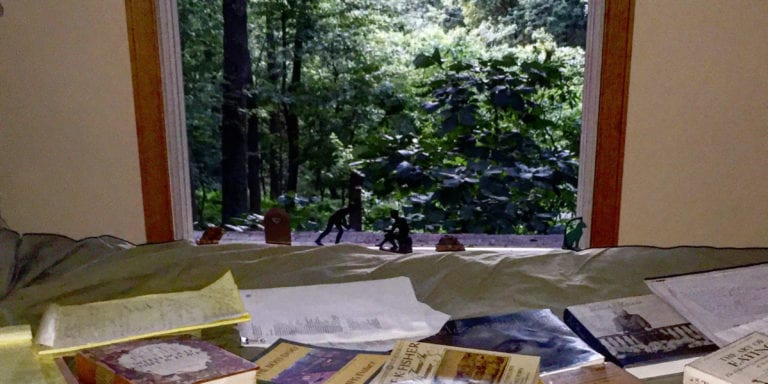
I am a very private person. I keep my personal life to myself. I’m terribly shy about many things.
So, it is with difficulty that I confess here that I have been in an intense love affair for the last couple of years.
I’ve known the woman a very long time. We would get together occasionally, and I enjoyed those times very much. But it was just a friendship until recently.
Now we spend a great deal of time together.
I often awake to find her in bed next to me.
I often reach for her in the night.
We go many places together. We’ve gone to California and France and Switzerland and…
I know her life story. She has told me all about her childhood. Growing up. Her marriages.
Some things I think I’d rather not know.
But I am in love for sure.
All in.
Her name is Mary Frances Kennedy Fisher. I guess this story could be titled “Me and MFK.”
She’s been dead for 26 years. She was born 7 years before my mother (and my mother was nearing 40 when I was born.)
But to me she lives.
I don’t have a firm memory of when we first met. It was likely in the early 1980s in The New Yorker Magazine. I subscribed to that periodical for many, many years—and not just for the cartoons.
The New Yorker lists about 37 entries for her from 1964 to 2000. The list I found doesn’t go back further than that.
https://www.newyorker.com/contributors/m-f-k-fisher/page/4
Her NY Times obituary said: “In a career spanning more than 60 years, Mrs. Fisher wrote hundreds of stories for The New Yorker….” Hundreds is a LOT. I wouldn’t know. I don’t think I read The New Yorker much before 1980.
I think I considered MFK a “food writer” and mostly associated her with France for many of the intervening years. I noted in passing her passing in 1992. As a young bookseller, I think I considered her death as just another elderly and not extremely famous author’s demise. I’m sure I would have thought:
“We will get numerous requests for her books in the stores. What we have in stock now will sell out quickly. The requests and sales will soon slow down. In a week or two, things will go back to what they were before.”
Was it How To Cook a Wolf that “stuck to my hand” when I was sorting in the warehouse 4 or 5 years ago? When I say a book has “stuck to my hand” it means that in the rapid process of sorting the thousands of book I touch every week, a book will often stop me from my task. Something about it will call to me. I will often end up taking it home. Sooner or later I may pick it up again and open it. Maybe the title intrigued me. Was there a recipe for wolf inside this book? How exotic. It was an original edition and evoked that sense of time and place and context that one gets holding and reading an early or first edition of a vintage book.
Sometime sooner or later I did pick it up and read it through. There was nothing exotic in it and no “wolf” recipes. There are not many other recipes either. The chapter titles were intriguing and humorous:
”How to Distribute Your Virtue” ”How to Boil Water” “How Not to Boil an Egg” ”How to Be Cheerful Through Starving” ”How to Pray for Peace” ”How to Be Content With a Vegetable Love” “How to Make a Pigeon Cry” “How to Practice True Economy”
It was a fast fun read. I’m pretty sure she was contracted to write a cookbook about making do with the World War II austerity holding the United States in thrall in the very early 1940s. Rationing, unavailable foods and materials… The publisher probably wanted recipes on how to make bland staples into delicious meals.
What MFK served was philosophy and humor and delicious prose interspersed with occasional recipes and suggestions on making something edible from still available, very plain ingredients. Ingredients which could be very problematic to make palatable.
I found a 1942 NY Times review (linked below.) The author—despite the male chauvinism that permeates the review—”gets” the work. (Believe me, I KNOW one must look at any possible current judgment on a writer’s social violations in the context of the times and what were societal norms when the words were written. In 1942 it wasn’t chauvinism. It was the norm.)
He writes:
One of the charms of ”How To Cook a Wolf” over and beyond any practical use of the recipes included is Mrs. Fisher’s wry humor. She tells amusing stories between dishes and colors nearly every page with her own forthright, astringent personality.
Here’s the rest:
https://archive.nytimes.com/www.nytimes.com/books/98/01/18/home/fisher-wolf.html?_r=1
I guess it was then I began looking for copies of her books here. I’m sure I read her first, Serve It Forth, and second, Consider the Oyster, soon after.
I suppose it was when I read The Gastronomical Me on board a flight to LA for the annual ABAA California Antiquarian Book Show that I became enthralled with her. The first sentence:
The first thing I remember tasting and then wanting to taste again is the grayish-pink fuzz my grandmother skimmed from a spitting kettle of strawberry jam. I suppose I was about four.
I remember watching the back of my own stout mother at the stove. Steam and bubbling noises rising before her. She would put up jam from the large Queen Anne Cherry tree in the backyard in Amerhest, New York where I spent my childhood. Was that tree as big as I remember now? Or was I so small it seemed enormous? I vividly recall my nimble and athletic brother Jimmie, ten years my elder, climbing it and shaking the branches so the cherries would fall on the blankets spread below. She would also make jelly and jam from the Concord Grape arbor in that same backyard. She would sometimes hold a wooden spoon out and summon me to sip something sweet from it. That wooden spoon would also on occasion entertain my other end when a spanking was called for. Sometimes the kitchen tool of punishment was the metal spatula that stung much worse.
This book struck me with its autobiographical frankness—especially in the “context of the times when it was written” and the fact the writer was a woman in those times. The 26 essays jump through her life from when she was a toddler (1912) until she was a young widow (1941.) The pace was so fast I was breathless. Was it all true? Who was “Chexbres”? Clearly it was a pseudonym. I did some brief searches. Chexbres is a Canton in Switzerland. MFK spent some years there with her first husband, Al Fisher, an aspiring poet. She also spent time there with her lover and second husband, artist Dillwyn (Timmy) Parrish, and his sister, the author Anne Parrish. (Anne and Tim got a Newberry Honor for a children’s book she wrote and he illustrated (The Dream Coach.)) More than one source about MFK also cites that Chexbres is the Basque word for “goat.” The very male Chexbres MFK writes about in The Gastronomical Me could certainly have been aptly named for both.
And despite the title, the book was not all about food and cooking and eating. I felt it was about “appetites” of all kinds.
And it was confusing. I didn’t understand all that came before. And I had no idea of what came after. It was just delightful vignettes without context. For some reason, I didn’t cheat and search for her biography online.
I have never been much interested in biography per se. I read what I need to. I certainly have eschewed most memoirs, journals, letters…
4 years ago my life was turned upside down when we completed the move to our warehouse. We had a gun to our head (the landlord’s deadline—June 30, 2014) to get out of the old warehouse so it could be demolished. Frederick, Maryland needed a bigger WalMart. We moved several million books. Some in bulk. Many were moved in specific order so they could be precisely located in the new warehouse for online sales. The transfer was like riding the whirlwind and yet another leap of faith. I had no idea if we could afford the “new” warehouse or if the business could survive the “gestation” period of the nine months it took to get everything out of the old 72,000 square foot building and into 130,000 square feet.
The ensuing year was full of recovery and intense design and adaptation to our new digs. In retrospect I really don’t know how we did it. I’m surprised sanity was maintained—my own in particular.
Why take on such a mammoth and risky endeavor? I wasn’t ready to quit. And, ummm, what would happen to the all books if Wonder Book went dark?
It was about this time of year in 2015 my Muse raised me to the highest heights. I had wings. How could I deserve such joy and happiness? Almost exactly a year later it all came crashing down. The Mandala came full circle. It hurt like hell when I banged my head on the ground as the wheel spun toward the bottom. The head banging continued through 2017 and still does today although, blessedly, to lesser and lesser extents.
I will shout out a question to my Book Muse. If she doesn’t respond, I’ll call it a cry to the heavens.
“Dear Muse, will the wheel spin me upward soon? Please?”
“Slowly but surely. Haven’t ye takin’ notice?”
She heard!
“Can we speed up the Mandala’s turn a bit?”
“Perhaps.”
There had been a stack of MFK on my desk at home. Marginal stuff in my opinion. Mostly modern editions I’d taken to the house—I don’t know why. Journals, memoirs…I’d walked past them hundreds of times and was never called to pick one up. They just looked so dull. They were mostly things she had written late in life or were published posthumously. I often thought I should take them back and put them up for sale online or in the stores.
One dark night I did pick one up and took it to bed with me.
Its title was Sister Age.
I thought it would be the ruminations of a woman growing old. There’s a bit of that, but the 15 stories are a complete delight. There’s even a ghost story! A GOOD one IMHO!
Here’s the Random house blurb:
In these fifteen remarkable stories, M.F.K. Fisher, one of the most admired writers of our time, embraces the coming of old age. With a saint to guide us, she writes, perhaps we can accept in a loving way “the inevitable visits of a possibly nagging harpy like Sister Age” But in the stories, it is the human strength in the unavoidable encounter with the end of life that Fisher dramatizes so powerfully. Other themes—the importance of witnessing death, the marvelous resilience of the old, the passing of vanity—are all explored with insight, sympathy and, often, a sly wit.
I’d been thrown a lifeline. And I held tight to it.
In the intervening months, I’ve read so many others.
Then it was Among Friends. That book records her childhood in California in the early 1900s. Did I ever think reading a childhood memoir of anyone would be worth the time? No. I would never read such a thing. Even if it was Tolkien, I don’t think I would ever open it up. Certainly, I would not go through it cover to cover.
I spent many nights with MFK telling me about growing up. Not only was Whittier, California pretty primitive then (California was still the Wild West in many ways), but the town was dominated by Quakers. Her family being Episcopalians were excluded socially in many ways. There was much prejudice against her and the “others” in that nearly monochromatic town. MFK states she was never invited across a Quaker schoolmate’s threshold. Her family also spent time camping out in tents on a bit of seaside property her father acquired at Laguna Beach. It was remote, lonely and completely undeveloped. Imagine that idyll! Catching and grilling fresh-caught fish and shellfish. Eventually her father would erect a shack there. They would spend time there as a family or the kids would be sent there with a kind of nanny that was nearly part of the family. She tells of early food memories as well as the revolving door of servant/cooks who passed through the house. She records in luscious prose evocative and tragic events on a small personal scale but, oh so, large and important to any individual. I was falling in love with the woman who could write about such things in such a way as to capture my soul and heart and take me with her to magic times and places.
So, I now knew MFK’s life story as a child.
From there I moved on to her journals and other late and posthumous works.
“The Bareacres Journals” in Stay Me, Oh Comfort Me record her time in California building a home on a dry barren ranch with Tim and the subsequent tragedies there. So with those chapters, she brought to life California in the 30s and 40s as well as the twilight and end of her second marriage to Timmy. She also records stories of book luminaries like Jake Zeitlin and Lawrence Powell. Powell was a close lifelong friend in Europe and in California.
Other books took me through her child-raising years in California and in France. The scope of her whole life was coming together. The tapestry was being woven from all directions through all the times and places of her life.
A month or so ago I read Last House. I’d been avoiding that. I knew what Last House was by now. I knew what it meant. Here’s the Wikipedia on it:
In 1971, Mary’s friend David Bouverie, who owned a ranch in Glen Ellen, California, offered to build Mary a house on his ranch. Mary designed the home, calling it “Last House.” The presence of ranch staff made it easy for her to use the home as a base for frequent travels. She returned to France in 1970, 1973, 1976 and 1978, visiting, inter alia, La Roquette, Marseilles, and Aix.
I don’t like endings. I never have. She was about 63 when she moved to that dream house. My mother died at 63. My dad at 65.
I didn’t know if I wanted to go down that road. It was a road with an end to it. The joy and passion and escape that Mary Frances had given me in the last months could all be brought down by sadness, tragedy and death.
I thought it might be depressing. I was down enough. My eldest brother who had been bedridden for a couple years passed away in March. I was cast adrift by a couple close friends. I was confused by that and desperately hurt. Was I crazy or were they? Other friends and my surviving brother were experiencing life changing late life “procedures.”
I found myself looking out from my home, Lonely Mountain, at an uncertain horizon. The land faces east so I only see the sunrise. How it sets beyond the forest and high ridges behind me I cannot know unless I climb the cliff to the summit and look over the wilderness beyond. To me sunsets there are out of context.
I read the Introduction. I seldom read Intros or Prefaces. I almost always want to experience a book unwarned, unadorned. Those pages were quite painful. They described the last years at Last House. Did I want to go through that with her?
I did begin the book. Maybe was out of love that I went along with her on that journey. To me and my feelings in this time and context the book was cathartic and inspiring…and painful. And cautionary.
We can cry to the heavens: “Why does this happen?” Thinking persons have done this for eons.
Why?
So my love affair with MFK continues.
I guess we got together when I needed her most.
I still have some of her books remaining to read. I’ll likely reread some things now since I know the story from beginning to end and can better understand certain “whys” and “wherefores.” I rarely reread anything.
I still have a lot of her books on the bed next to me. I can reach for her in the dark solitary nights and live with her in California or in Europe; in times long gone and times not yet too distant. And I can experience the eternal verities with her as well.
Books take you places. I go thousands of places every week with just the books that pass through my hands at Wonder Book. In all the “Wonder Years,” there’s never been a day at “work” where I’ve not seen a book I’ve never held before. Though I know scientifically it is not possible, to me and my small mind they are infinite. And that gives me comfort and inspiration and the desire to come back tomorrow.
I’ll finish this with some quotes by and about Mary Frances:
W. H. Auden once remarked, “I do not know of anyone in the United States who writes better prose.”
After Dillwyn (Tim) Parrish’s death, Fisher considered herself a “ghost” of a person, but she continued to have a long and productive life, dying at the age of 83 in Glen Ellen, California, in 1992. She had long suffered from Parkinson’s disease and arthritis. She spent the last twenty years of her life in “Last House,” a house built for her in a vineyard. — Wikipedia
Parrish died in 1941. She said she lived the rest of her life as a “ghost.” 51 productive years as a ghost.
“I don’t think I’m a food writer any more than I am a love writer or a fish writer or a fowl writer. I just write about life.” — MFK Fisher
The problem with most food writing is that it is too much about ingredients and not enough about appetite. Every time I return to MFK Fisher—and she is the most rereadable of all prose stylists—I am struck that she tells you all the vital stuff that other food writers leave out. Her books are full of private cravings. — Financial Times
“People ask me: Why do you write about food, and eating and drinking? Why don’t you write about the struggle for power and security, and about love, the way others do. They ask it accusingly, as if I were somehow gross, unfaithful to the honor of my craft.”
“The easiest answer is to say that, like most humans, I am hungry. But there is more than that. It seems to me that our three basic needs, for food and security and love are so mixed and mingled and entwined that we cannot straightly think of one without the others. So it happens that when I write of hunger, I am really writing about love and the hunger for it, and warmth and the love of it and the hunger for it.” — MFK Fisher

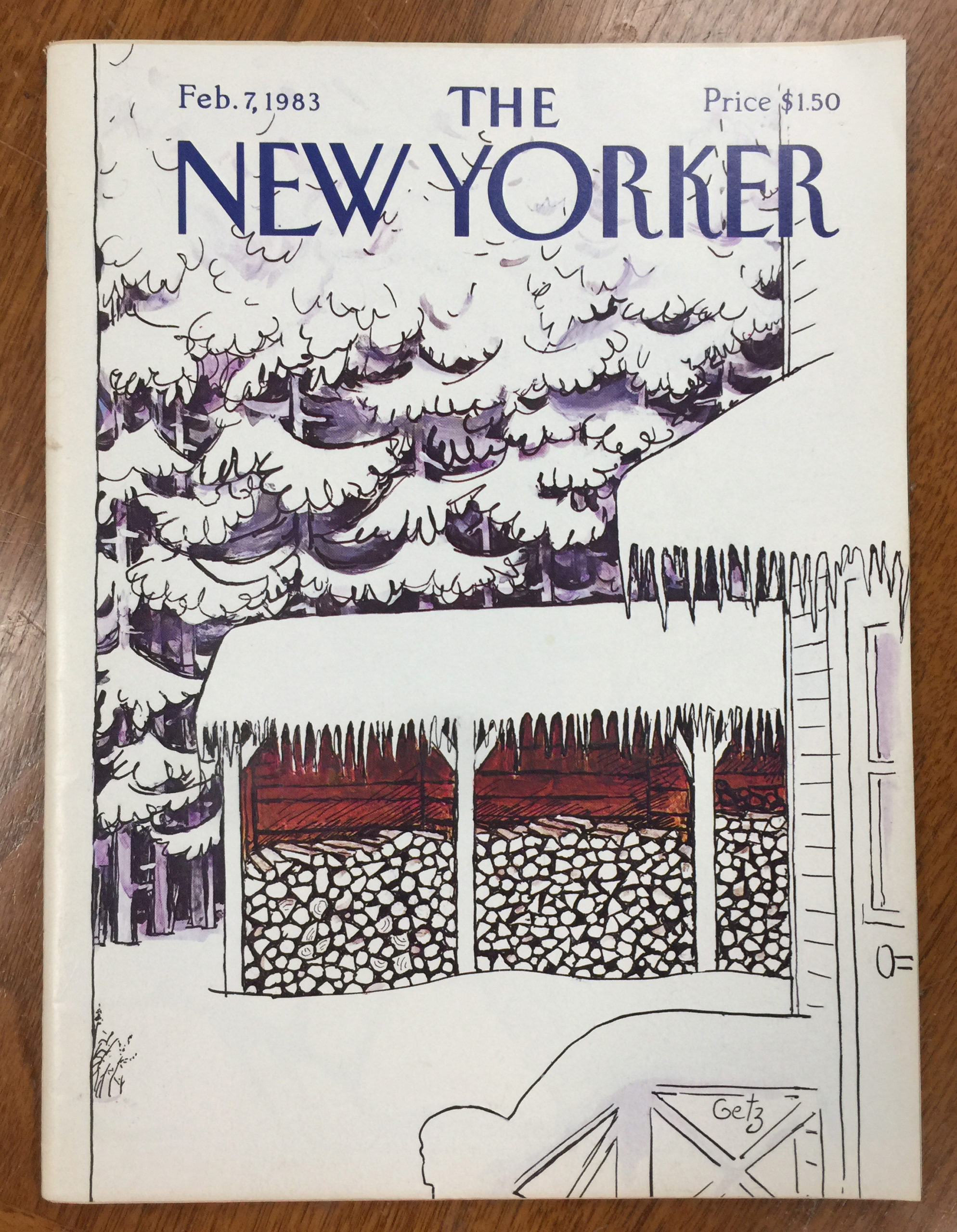
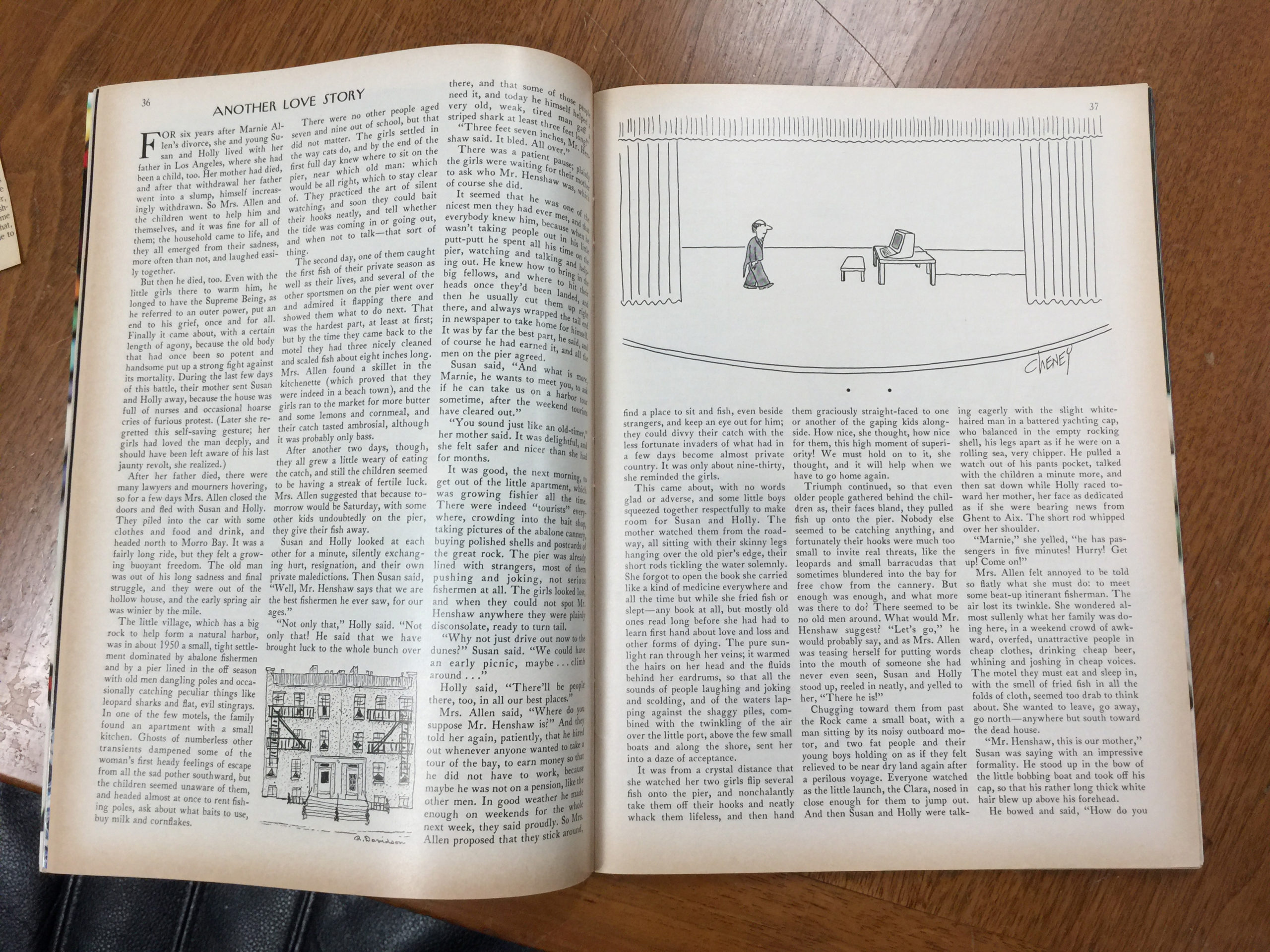
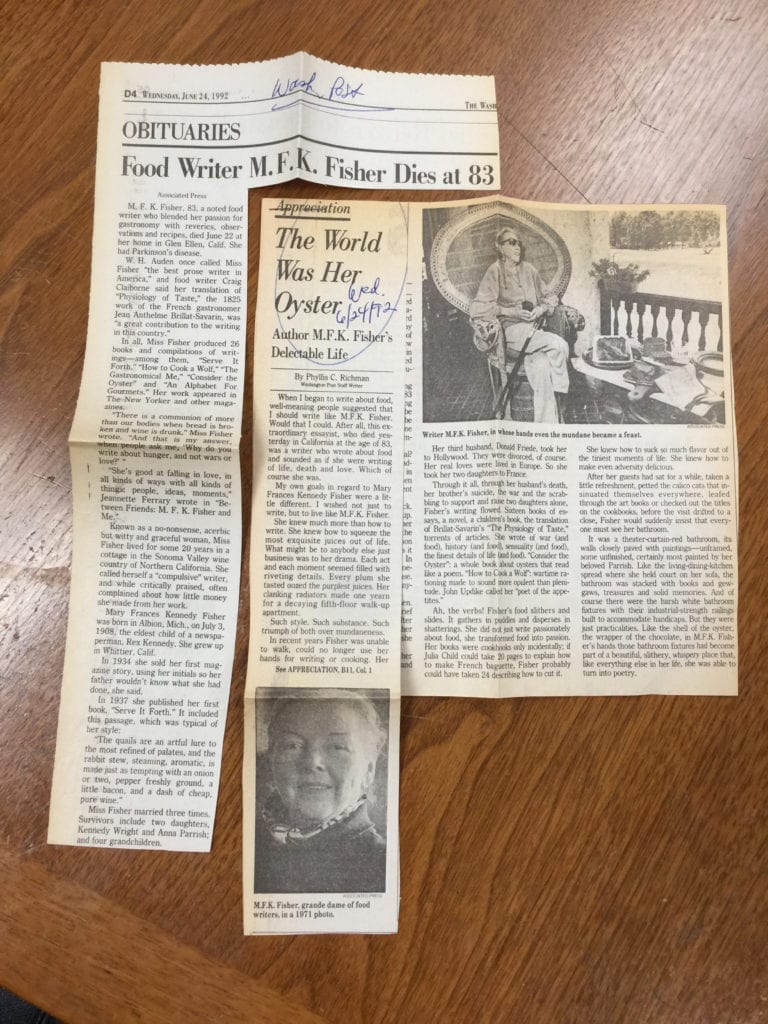
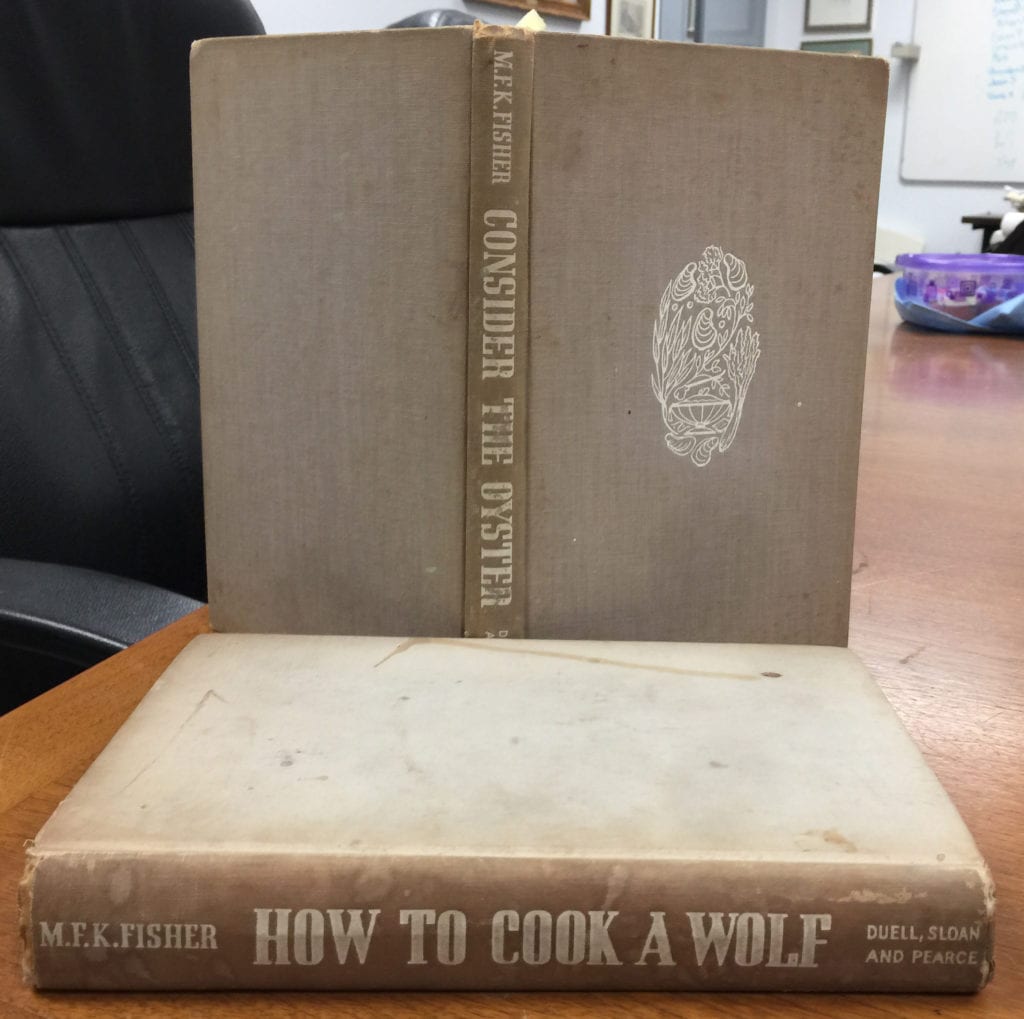
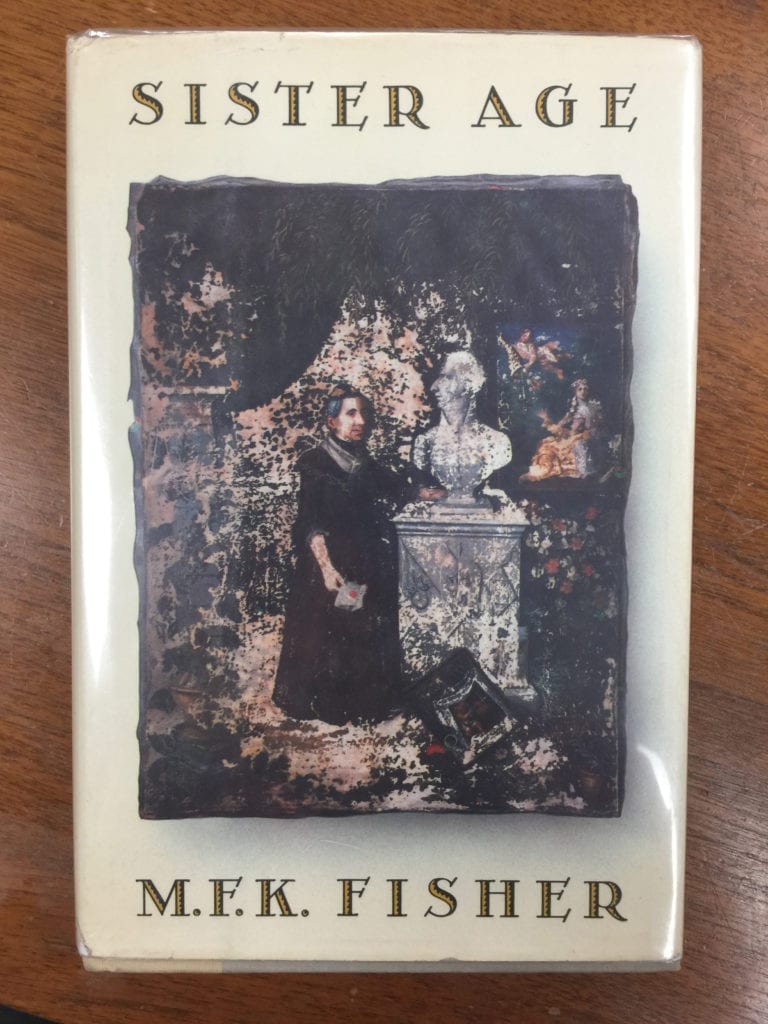
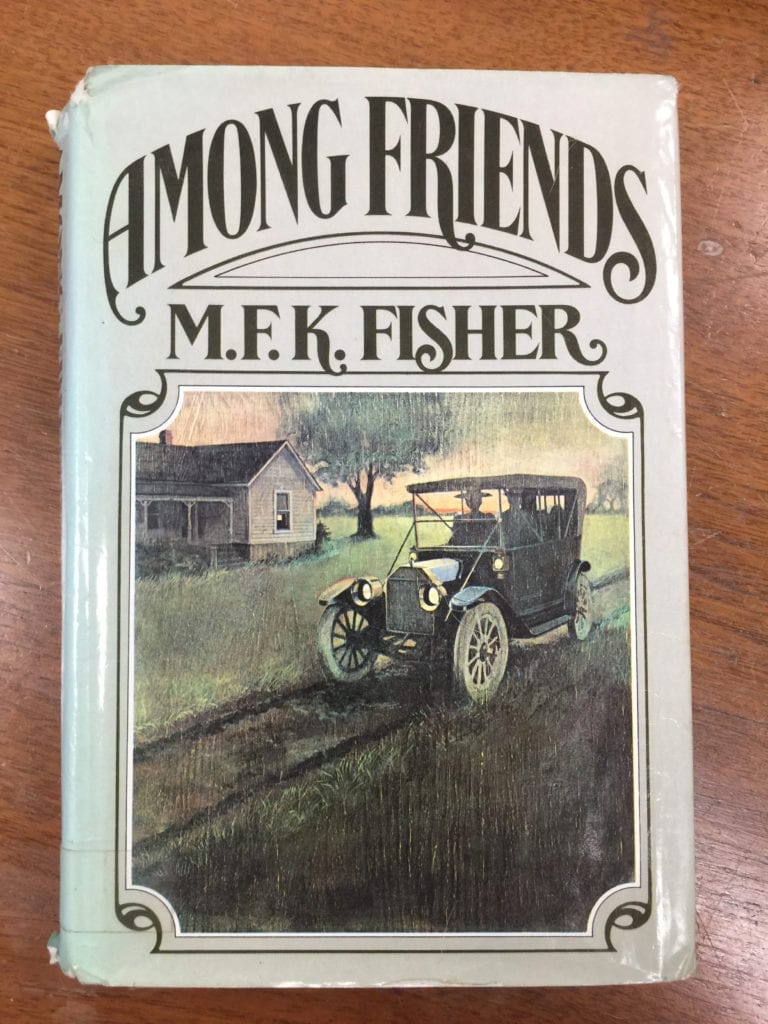
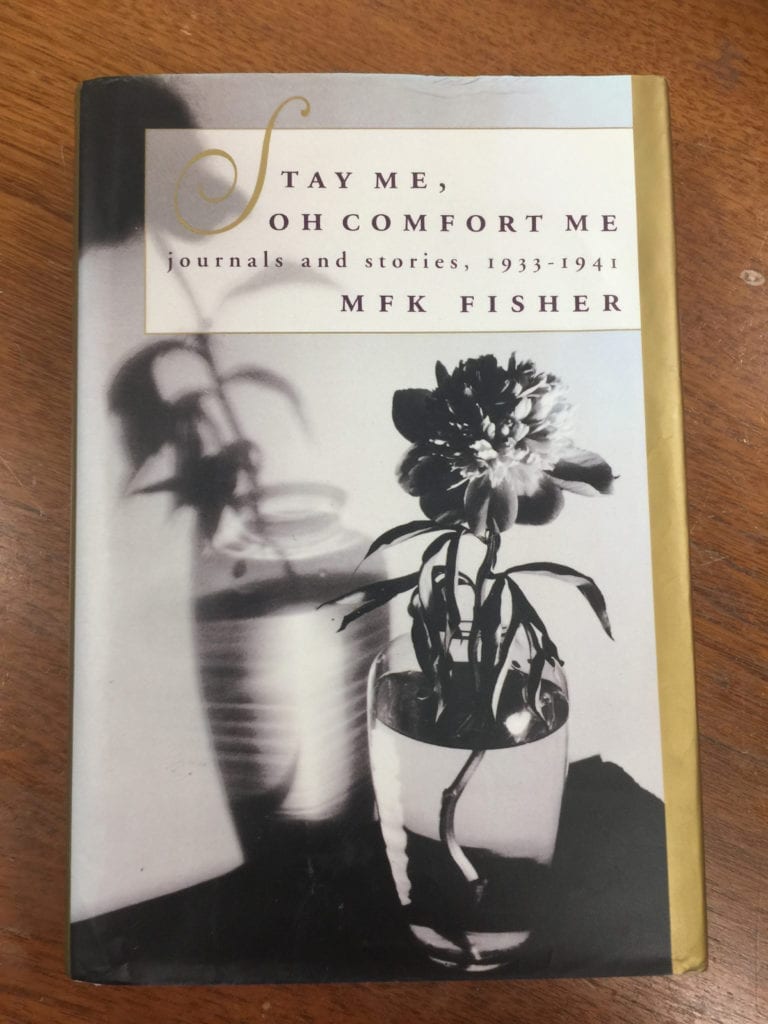
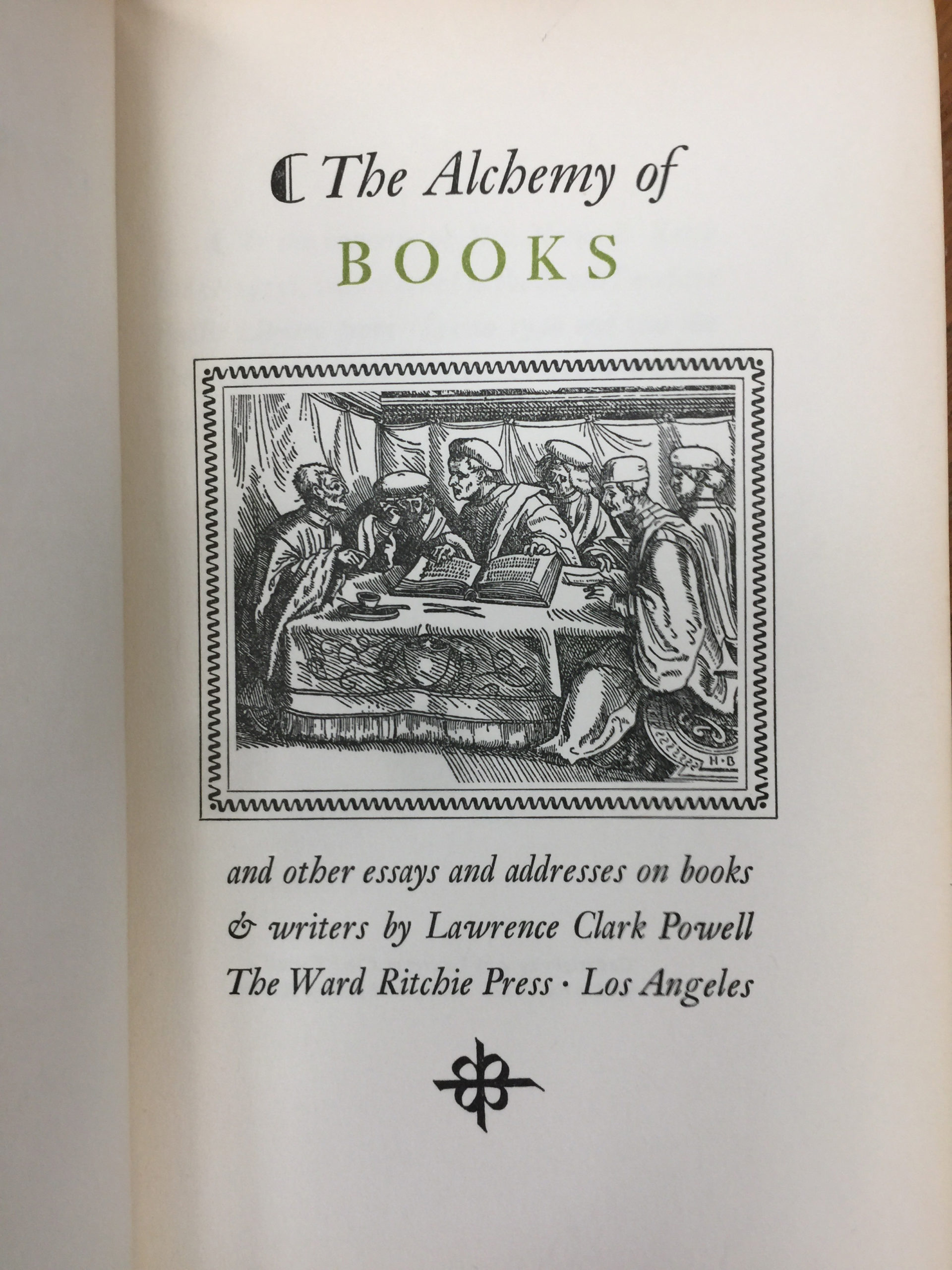
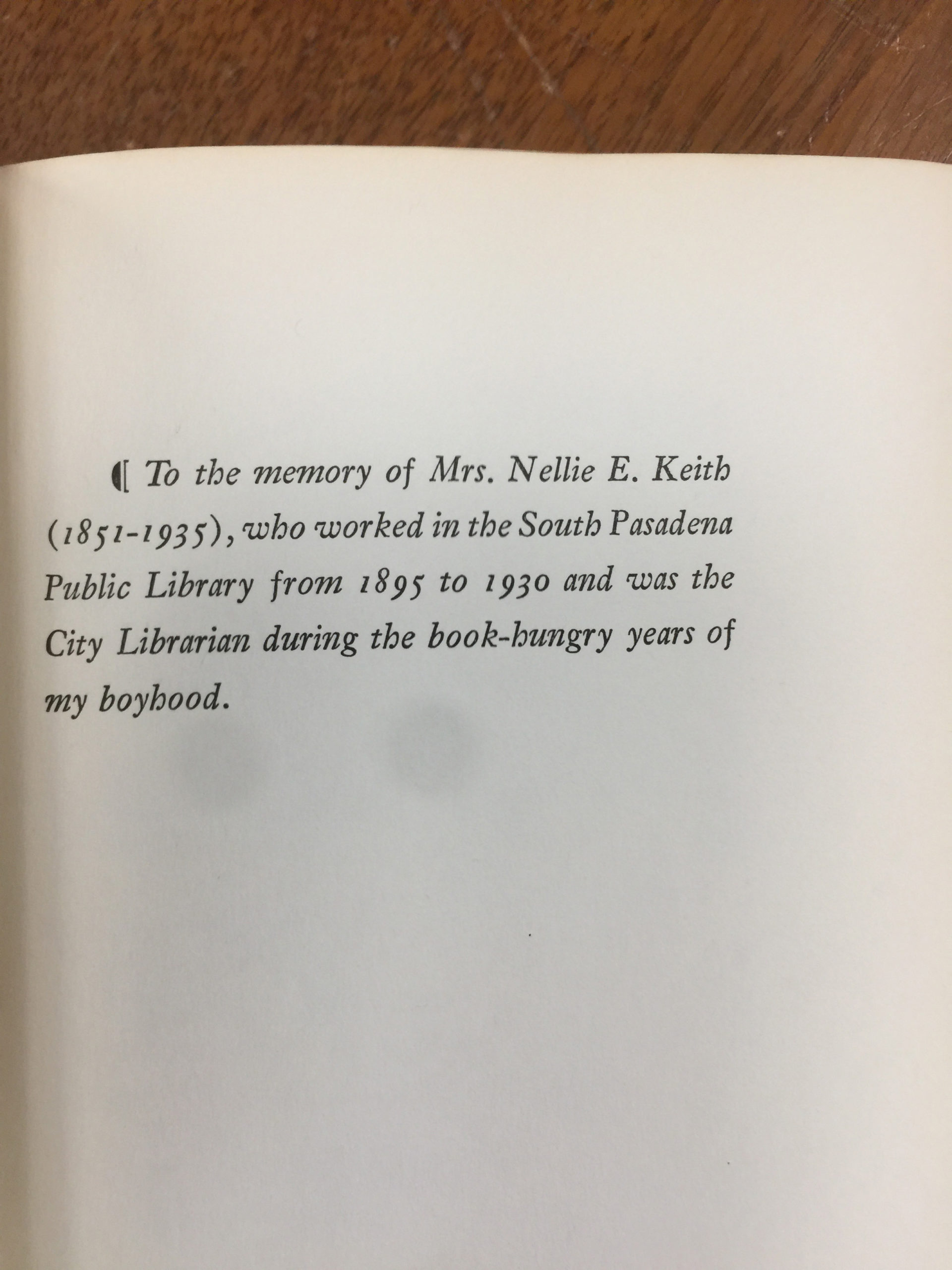
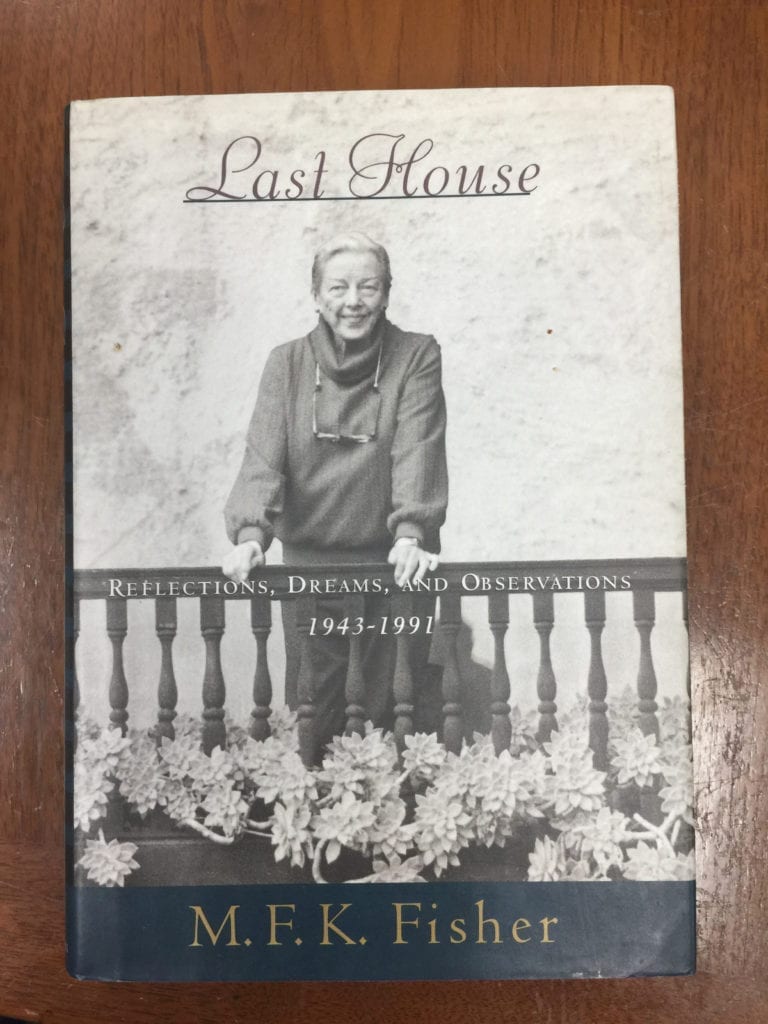
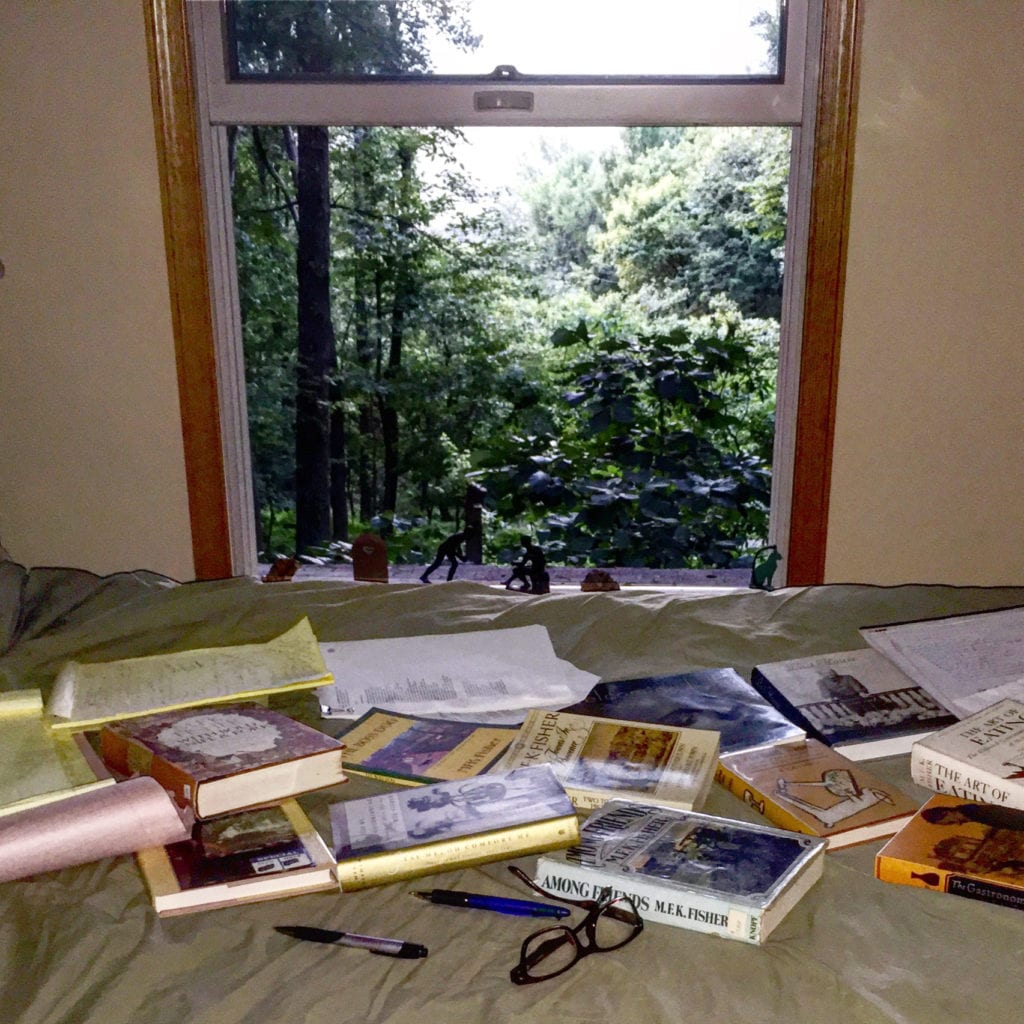
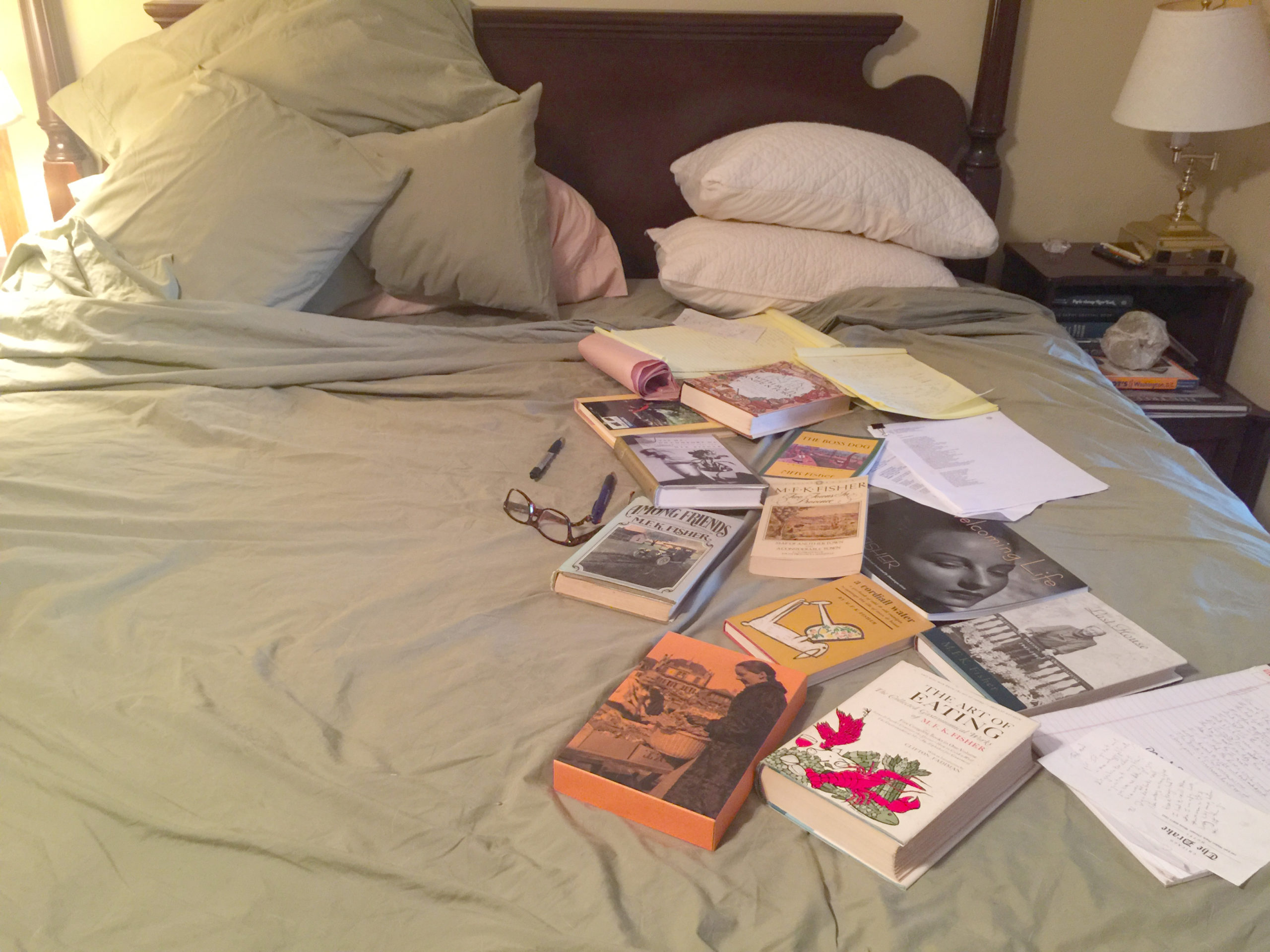
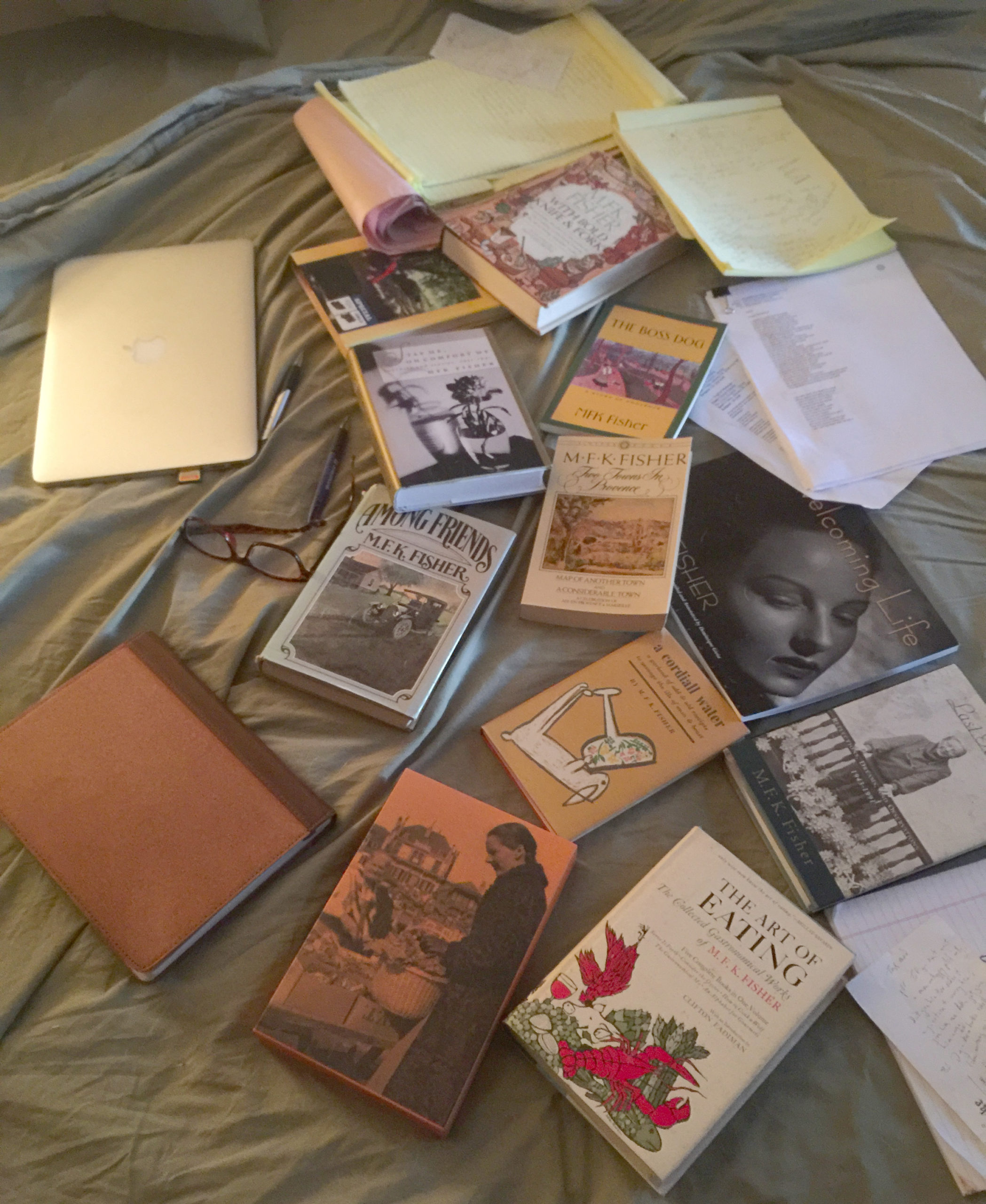
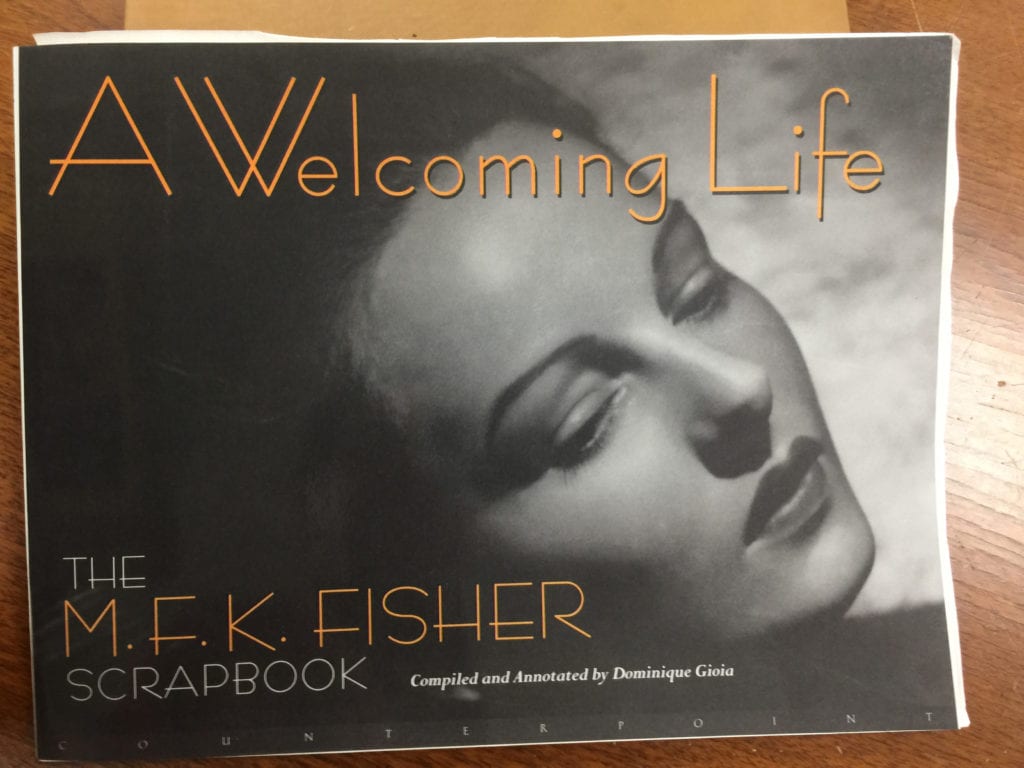
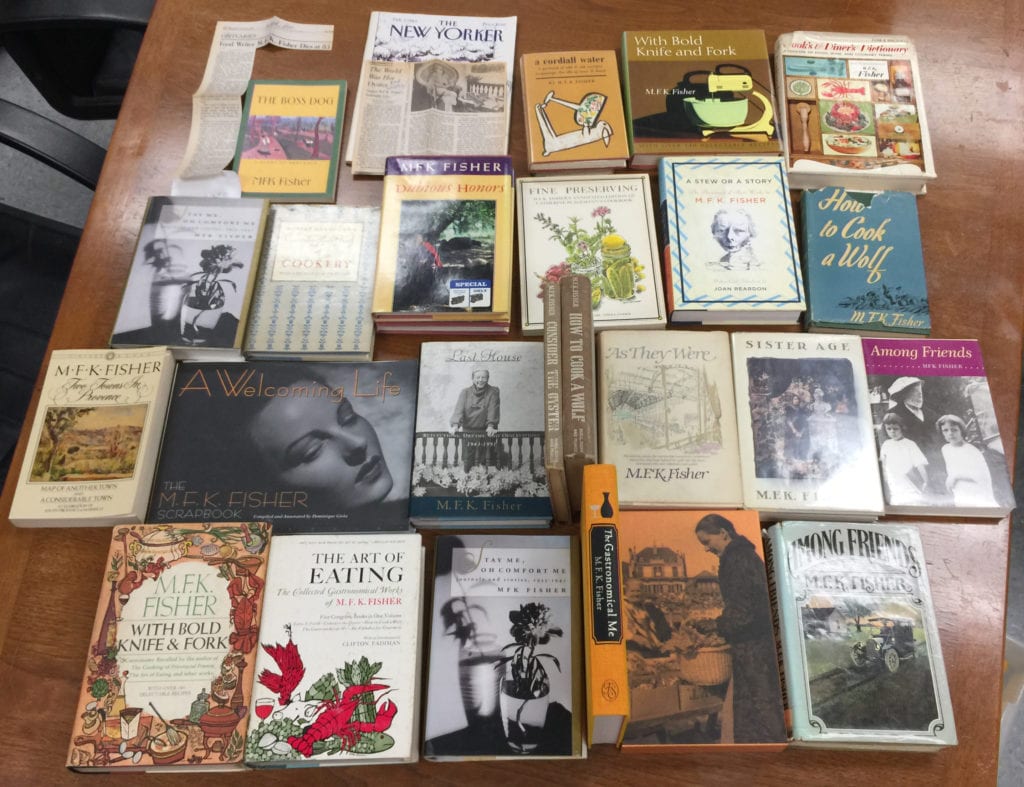
Intriguing entry, as always. I had never heard of MFK Fisher before. I had no idea what I was missing. Thank you for your wonderful ponderings. I’ve always read your blog entries but haven’t commented on them until just recently. I just want you to know that they are being read. Keep writing!
Thank you for reading and commenting. It means a lot to know they are being read! Best, Chuck
I agree with Victoria. Keep writing!
Thank you so much, Tawn!
Thanks for a lovely entry. I have a literary affair with James Agate, gone many years before my birth! I learned about him through notes I made during my reading of Jacques Barzun’s review of Western Literature
I will have to look into James Agate. Thank you for reading the story and commenting!
Best, Chuck
This was a lovely post. Thank you for sharing your love of a wonderfully talented writer.
I happened upon MFK one late night when I couldn’t sleep in the early 90’s. I turned on my local PBS in Iowa, and there was a documentary about MFK, “MFK Fisher: Writer With a Bite.” I fell for her writing just hearing it, went out that week and ordered a copy of “The Art of Eating” from my bookstore in town (one of two bookstores, pre-internet those days).
I’ve read my copy multiple times, and plan to keep reading it. And of course, I’ve read the other titles you mentioned in your post.
Thank you very much for reading and commenting. I’m glad you discovered her as well. Chuck